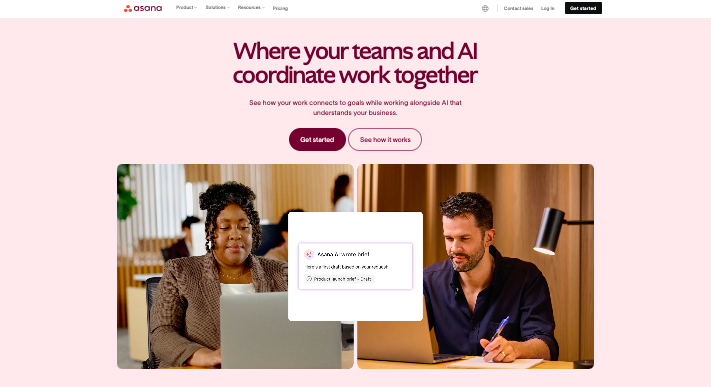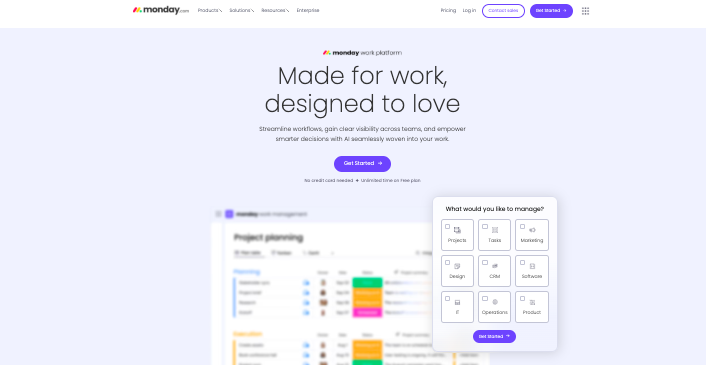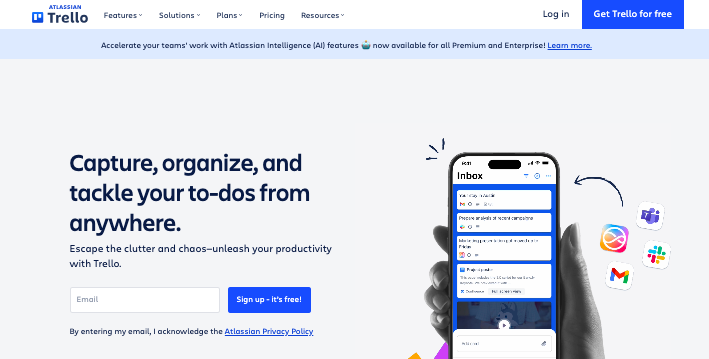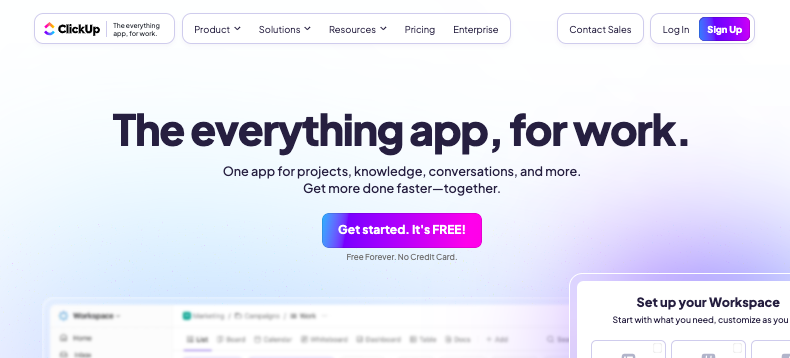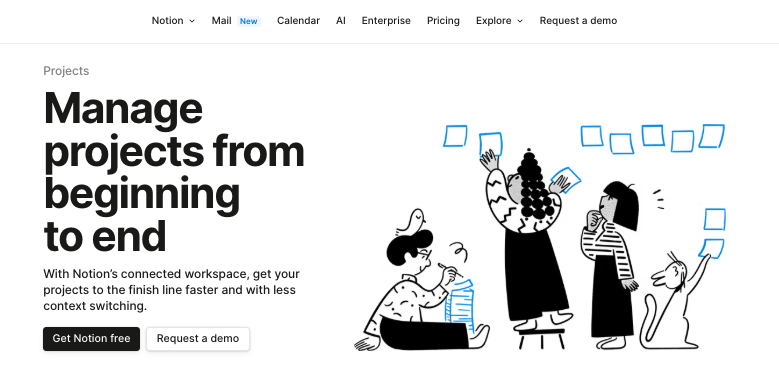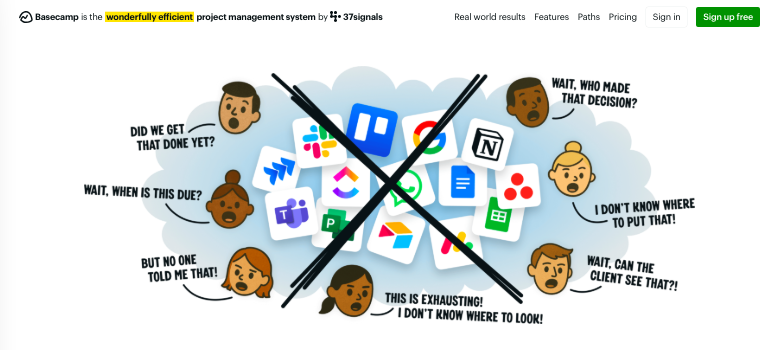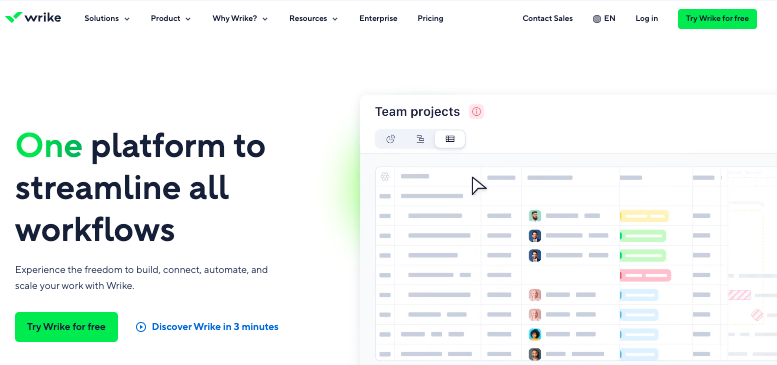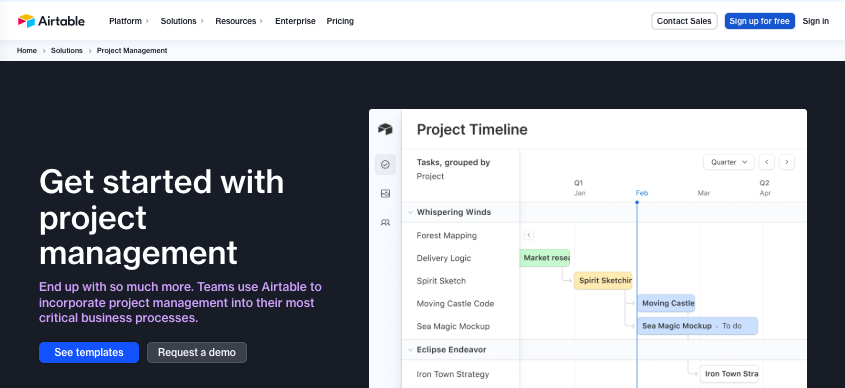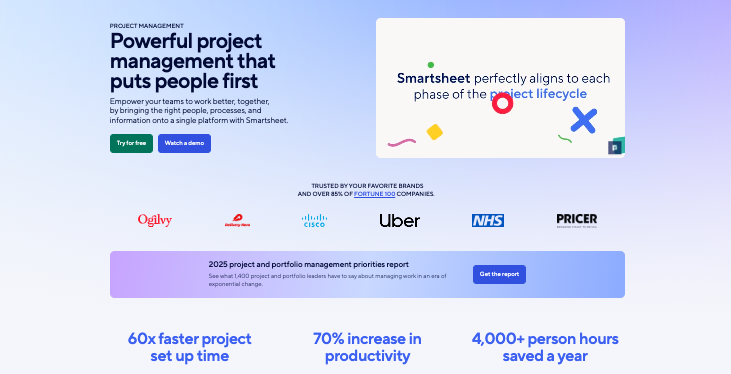At a time when not many tasks are realized without collaboration, finding the right project management tool that seamlessly enables team sharing and coordination is essential.
Taskray, a Salesforce-native project management platform, has been a popular choice for organizations already invested in the Salesforce ecosystem, offering visual project tracking, task management, and team collaboration features.
However, more people are seeking alternatives that provide flexible sharing options, better cross-platform integration, and affordable pricing structures.
In this guide, we will walk you through the top alternatives to Taskray that excel in sharing and collaboration capabilities.
Take a look.
1. Asana
Asana stands out as one of the most user-friendly project management platforms, offering exceptional sharing capabilities that make team collaboration effortless. The platform excels in providing multiple project views and robust permission controls, allowing teams to share work with both internal members and external stakeholders seamlessly. Its intuitive interface and powerful automation features make it an ideal choice for teams of all sizes.
Key Features:
- Multiple project views (list, board, timeline, calendar)
- Advanced sharing permissions with guest access options
- Real-time collaboration and commenting system
- Custom fields and project templates
- Portfolio management for tracking multiple projects
- Mobile apps for iOS and Android
- Integration with 200+ third-party applications
- Advanced search and reporting capabilities
Also Read: Jira vs Asana
2. Monday.com
Monday.com delivers a highly visual and customizable project management experience with outstanding sharing functionalities that cater to diverse team structures. The platform’s strength lies in its flexibility, allowing teams to create custom workflows while maintaining transparency through comprehensive sharing options. Its colorful, intuitive interface makes project tracking engaging and accessible for all team members.
Key Features:
- Customizable colored boards and workflows
- Shareable dashboards with real-time updates
- Guest and client portal access
- Automation rules and time tracking
- File sharing and proofing capabilities
- Multiple project templates and views
- Advanced analytics and reporting
- White-label options for client-facing projects
3. Trello
Trello offers a simple yet powerful Kanban-based approach to project management, with sharing features that make it perfect for teams seeking straightforward collaboration tools. Its card-based system is incredibly intuitive, allowing team members to quickly understand project status and contribute effectively. The platform’s simplicity doesn’t compromise its sharing capabilities, offering flexible board permissions and seamless team coordination.
Key Features:
- Kanban-style boards with drag-and-drop functionality
- Board sharing with customizable permission levels
- Power-ups for extended functionality
- Card comments, attachments, and due dates
- Team and organization management
- Mobile synchronization across devices
- Butler automation for repetitive tasks
- Integration with popular business tools
Also Read: Best Open-source Trello Alternatives
4. ClickUp
ClickUp positions itself as an all-in-one productivity platform with comprehensive sharing features that accommodate complex project management needs. The platform offers unparalleled customization options while maintaining strong collaboration tools, making it suitable for teams that require detailed project oversight. Its extensive feature set includes everything from simple task sharing to advanced project reporting with stakeholder access.
Key Features:
- Multiple project views (Gantt, calendar, board, list)
- Granular sharing permissions and guest access
- Built-in document sharing and collaboration
- Custom fields, statuses, and workflows
- Time tracking and resource management
- Goal setting and OKR tracking
- Advanced reporting and dashboard sharing
- Native integrations with 1000+ applications
Explore: ClickUp vs Notion
5. Notion
Notion combines project management with knowledge management, offering unique sharing capabilities that transform how teams collaborate on projects and documentation. The platform’s block-based approach allows for incredible flexibility in creating shared workspaces that serve multiple purposes beyond traditional project management. Its real-time collaboration features make it excellent for teams that need to share both projects and knowledge bases.
Key Features:
- Block-based content creation and organization
- Real-time collaborative editing and commenting
- Database functionality with relational properties
- Page and workspace sharing with permission controls
- Template gallery and custom template creation
- Embedded content support (videos, files, web pages)
- Cross-platform synchronization
- API access for custom integrations
Also Read: Best Free Alternatives To Trello Or Notion For Offline Use
6. Basecamp
Basecamp emphasizes simplicity and effective communication, providing sharing features that focus on keeping teams aligned without overwhelming complexity. The platform has built its reputation on being easy to use while providing all essential collaboration tools needed for successful project completion. Its client access features make it particularly valuable for agencies and consultants who need to share project progress with external stakeholders.
Key Features:
- Centralized project organization with automatic check-ins
- Client access and collaboration features
- Message boards for team discussions
- File and document sharing with version control
- To-do lists with assignment and due date tracking
- Schedule sharing and milestone management
- Campfire chat for real-time communication
- Email integration and forwarding capabilities
Check Out: Top Free Apps That Replace Notion
7. Wrike
Wrike delivers enterprise-grade project management with sophisticated sharing and collaboration features designed for complex organizational structures. The platform excels in providing detailed project visibility while maintaining security through advanced permission controls, making it ideal for larger teams and organizations. Its robust sharing capabilities extend to custom dashboards, reports, and project portfolios that can be shared with various stakeholder groups.
Key Features:
- Advanced project templates and custom workflows
- Shareable dashboards and real-time reporting
- Proofing and approval processes with stakeholder access
- Resource management and workload balancing
- Cross-project dependencies and portfolio management
- Custom request forms for intake management
- Advanced security features and admin controls
- Enterprise-level integrations and API access
Also Read: Airtable vs Notion
8. Airtable
Airtable combines the familiarity of spreadsheets with powerful database functionality, offering unique sharing capabilities that make data collaboration intuitive and flexible. The platform excels in situations where teams need to share structured information while maintaining the ability to view and manipulate data in multiple formats. Its sharing features are particularly strong for teams that need to collaborate on data-driven projects with external partners or clients.
Key Features:
- Spreadsheet-database hybrid with multiple views
- Collaborative base sharing with permission controls
- Form creation for external data collection
- Rich field types including attachments and links
- Filtered and sorted view sharing
- Comment system and revision history
- API access for custom application development
- Sync capabilities with external data sources
9. Smartsheet
Smartsheet provides a spreadsheet-like interface combined with powerful project management capabilities, featuring robust sharing options that make it ideal for teams comfortable with traditional spreadsheet workflows. The platform bridges the gap between Excel familiarity and modern project management needs, offering enterprise-level sharing controls that satisfy both technical and non-technical users. Its strength lies in providing complex project tracking while maintaining the simplicity that makes sharing and collaboration accessible to all team members.
Key Features:
- Familiar spreadsheet interface with enhanced project management features
- Advanced sharing permissions with role-based access controls
- Dynamic views and reports that update automatically
- Gantt charts and critical path project tracking
- Automated workflows and approval processes
- Resource management and capacity planning
- Dashboard creation with stakeholder sharing options
- Integration with Microsoft Office and Google Workspace
Also Read: SmartSheet vs Jira
10. Teamwork
Teamwork delivers comprehensive project management with exceptional client collaboration features, making it particularly valuable for agencies and service-based businesses that need extensive sharing capabilities. The platform excels in providing detailed project oversight while offering client portal access that keeps external stakeholders informed without overwhelming them with internal complexities. Its robust permission system ensures that sensitive information remains secure while promoting transparency where needed.
Key Features:
- Dedicated client portal for external stakeholder access
- Advanced project templates and milestone tracking
- Time tracking with detailed reporting and invoicing integration
- File proofing and approval workflows
- Team chat and communication tools
- Custom project dashboards with sharing options
- Desk (help desk) integration for client support
- White-label options for branded client experiences
Conclusion
For teams seeking simplicity and visual appeal, Trello and Monday.com offer excellent solutions with intuitive sharing features.
Organizations requiring more comprehensive functionality should consider ClickUp or Wrike, both of which provide enterprise-level sharing capabilities alongside robust project management tools.
Asana strikes an excellent balance between functionality and ease of use, making it ideal for growing teams that need scalable sharing options.
For teams that value flexibility and customization, Notion and Airtable provide unique approaches to collaborative work management that extend beyond traditional project management.
Regardless of what you choose, you can’t go wrong. So potent are these tools.

